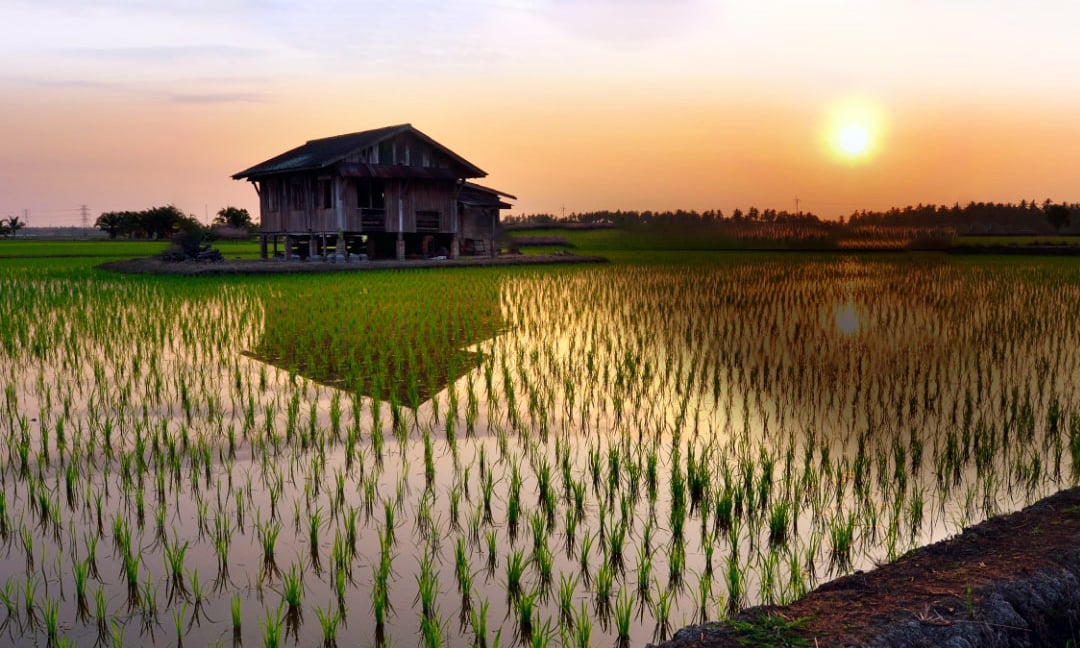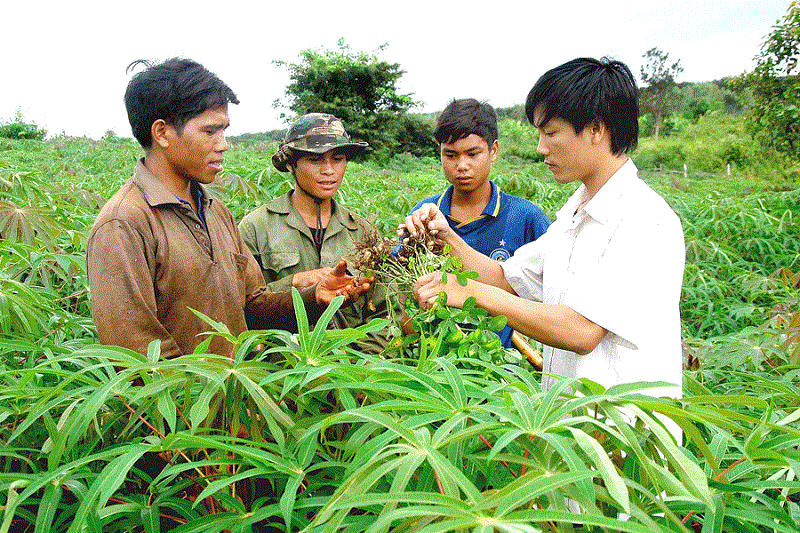November 24, 2025 | 10:58 GMT +7
November 24, 2025 | 10:58 GMT +7
Hotline: 0913.378.918
November 24, 2025 | 10:58 GMT +7
Hotline: 0913.378.918

Many food-agriculture cooperation programs are now funding only but are not investing in sustainable development. Photo: CGIAR.
Ending global hunger is an “affordable goal” despite the ongoing food crisis but requires a rethink of development aid and finance, according to the report “Ending hunger: the role of agri-food financing”.
It is estimated that the world will have 150 million more people were suffering from hunger, according to CGIAR. This number is forecast to increase by epidemics, the Russia-Ukraine conflict, and climate change.
Analysis carried out by Economist Impact with global agrifoods-focused research partnership CGIAR showed that increases in development funding alone have been insufficient to bring down food insecurity, with almost 670 million people projected to face hunger by 2030.
This gloomy outlook should not dissuade the international community from action “Ending hunger isn’t unattainable; it is actually quite an affordable goal,” emphasises Carin Smaller, Executive director of the Shamba Centre for Food and Climate. Realising this goal will require a substantial uplift in funding, in order to strengthen the productivity, sustainability and resilience of agri-food systems worldwide
In fact, in 2020, Ceres2030 (a partnership between academia, civil society and other global partners) estimated that an additional US$ 33billion would need to be spent annually to end hunger sustainably by 2030.
Sourcing such funds will require a shift in mindset from a myopic focus on short-term crisis response to emphasising interventions that strengthen food security in the long term. Such interventions include extension services, agricultural R&D, digital information services and small-scale irrigation expansion.
It concludes with three broad strategies to increase the volume and impact of financing for agri-food systems, with the goal of accelerating progress towards zero hunger: (1) Scaling up targeted development funding in the short term; (2) Realising the potential of the private sector; for example, through promotion of public-private partnerships, blended finance and digitisation, and (3) Maximising the impact of existing investment; for example, through prioritisation of investment in high-impact, low-cost interventions such as extension services, as well as allocation of development funding to geographies most in need of external assistance.
Among these, agricultural extension services are particularly noted for their high impact, low cost, and ability to penetrate remote areas.

Over the past year, Vietnam has strongly developed community extension groups.
The report found that too little investment had been directed towards long-term improvements in food production, with less than 7.5 per cent of overseas aid spent on research and innovation to tackle the root causes of hunger and malnutrition in 2021. Almost half of overseas development assistance (ODA) for food and agriculture was spent on food aid.
“While humanitarian food aid is a natural response to a crisis, funding research and innovation allows us to break free of the crisis response cycle and build long-term resilience,” said Claudia Sadoff, Executive Managing Director of CGIAR, which supports science, research and innovation for greater food security across the Global South.
“Investment in innovation takes time to bear fruit, but it pays off forever. With urgent action and growing investment, an end to world hunger, and the possibility of sustainable food systems, are within reach.”
“IFIs could do more to provide support. There is definitely progress, but not at the pace that we need to see it,” Rasmus Egendal, Deputy Director, Government Partnership Division, World Food Programme (WFP), told the report authors, “We are not seeing a commensurate increase in investment in longer-term food security. This only adds pressure on humanitarian needs.”
Systematic improvements in agriculture can have unexpected effects in reducing hunger. For example, with just 1% growth in annual agricultural production in Nigeria, 6 million people could be lifted out of poverty.
Similarly, if smallholder farmers are provided with modern storage equipment, such as sealed silos and storage bags, they can reduce food loss by 40% and ensure plenty of food to the supply chain.
“Investment in agriculture can be an engine for economic growth by alleviating poverty and giving people the ability to purchase the food they need,” said Saharah Moon Chapotin, Executive Director of the Foundation for Food & Agriculture Research.
Nearly half of the official development assistance abroad (ODA) for food and agriculture is paid for through food aid. CGIAR experts believe that more substantial commitments of countries and international organizations can improve this.
In 2022, Vietnam's agricultural extension system made a bold and breakthrough impression when successfully implementing the project "Improving the efficiency of agricultural extension activities based on consolidating the model of community agricultural extension groups".
Dozens of community agricultural extension groups have been established in all provinces and cities, creating a substantial spillover effect, contributing to gradually forming the concept of "agricultural extension services" and developing the brand name "Vietnamese agricultural extension".
Translated by Ha Phuc

(VAN) Trieu Son commune deploys a 'virtual assistant' to help residents complete administrative procedures.

(VAN) Applying green technology in rural water supply and sanitation helps improve resource efficiency, protect the environment, and enhance community living standards.

(VAN) Developing biosecure livestock production is the key that helps Tuyen Quang form linked chains in livestock production and build its brand in the market.

(VAN) During his bilateral activities in South Africa, Prime Minister Pham Minh Chinh welcomed Vice President of the South African Chamber of Commerce and Industry Neil Pollock.

(VAN) Prof. Dr. Hoang Van Cuong, National Assembly Deputy of the 14th and 15th terms, shares recent pioneering policy decisions.

(VAN) Deputy Minister Tran Thanh Nam directed a comprehensive reform of the agricultural extension system, emphasizing professionalism and connecting farmers with the market.
/2025/11/22/3633-1-072521_760.jpg)
(VAN) The signing ceremony took place under the witness of Prime Minister Pham Minh Chinh and President of the Republic of South Africa Cyril Ramaphosa.